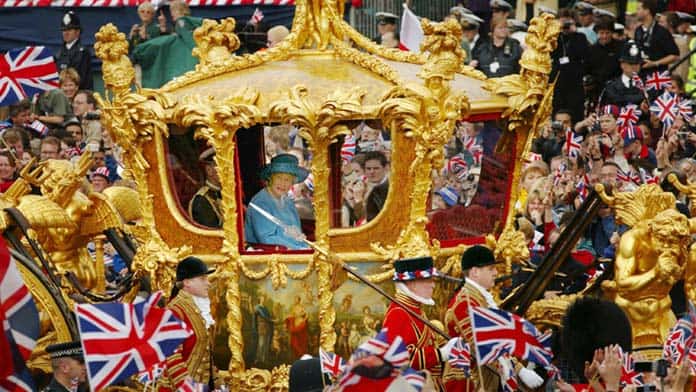Queen Elizabeth II was a parasite born into a life of privilege, with a household of more than 400 staff and tens of billions in assets.
The Crown Estate controls a $26 billion property portfolio including prime real estate in London, Buckingham Palace, the royal art collection and the seabed out to 19 kilometres from the coast, including the right to lease it to offshore wind or mining projects. While the British government now takes revenue from the estate, it pays the Crown an annual payment in return, currently set at $172 million a year.
That doesn’t include the cost of royal visits or special events, such as the $47 million spent on the Queen’s Platinum Jubilee celebrations earlier this year in Britain. Her last visit to Australia in 2011 cost taxpayers $1.74 million.
A separate financial empire, called the Duchy of Lancaster and held since 1399, is valued at $1.1 billion and covers 18,000 hectares of farmland and property including the Savoy Estate buildings in central London. Last year it earnt the Queen $40 million. In 1990 the Queen graciously agreed to pay tax on the proceeds, but negotiated a deal with the British government allowing the Duchy to be inherited by her successors untaxed.
A third fortune is held in the Duchy of Cornwall, valued at $1.7 billion and managed by the eldest son of the Monarch.
On top of all this the Queen privately owned the palaces of Balmoral in Scotland and Sandringham in Norfolk. Then there are the Crown Jewels, including the Koh-i-Noor Diamond, one of world’s largest diamonds, stolen in India under the British empire. It’s about time all of the Royals’ filthy loot was taken back.
Royals encouraged Whitlam sacking
Despite her supposedly completely symbolic role, Queen Elizabeth II helped encourage the undemocratic sacking of Australia’s Labor Prime Minister Gough Whitlam in 1975.
The “Palace Letters”, released to academic Jenny Hocking in 2020 and sent by the Queen’s private secretary Sir Martin Charteris, reveal that Governor-General John Kerr discussed his options with the Palace in elaborate detail.
The Liberals under Malcolm Fraser had blocked supply in the Senate, ruthlessly disregarding convention in an effort to force Whitlam out. The Palace told Kerr in a letter on 24 September 1975, that “if supply is refused this always makes it constitutionally proper to grant a dissolution”, helping encourage him to act.
Our new King Charles also spoke to Kerr about his options prior to the Dismissal and wrote to him afterwards praising his actions, telling him, “What you did last year was right and the courageous thing to do”. What outrageous contempt for democracy.






